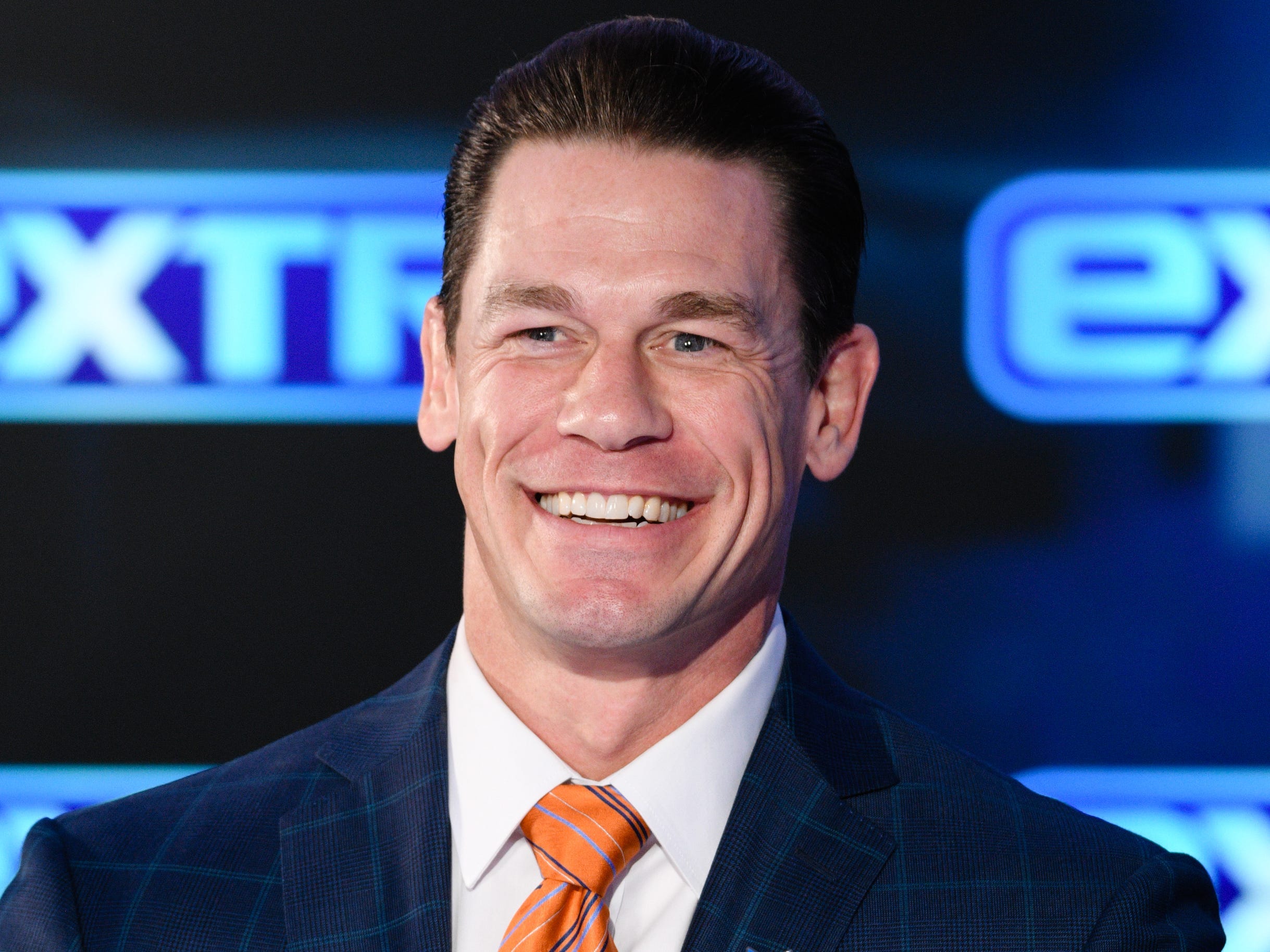
Noel Vasquez/Getty Images
- John Cena faced criticism in China after referring to Taiwan as a country in an interview for "F9."
- In a Weibo video shared Tuesday, Cena said he "made a mistake" and apologized in Mandarin.
- Calling Taiwan a sovereign nation is deemed "offensive" by many people in China, per NYT.
- Visit Insider's homepage for more stories.
John Cena, an actor and professional wrestler, expressed his "love and respect" for China after generating backlash among Chinese fans for referring to Taiwan as a country.
The criticism began following the 44-year-old's recent interview with Taiwanese broadcast TV channel TVBS to promote "F9," the latest film in the "Fast and Furious" franchise.
Speaking in Mandarin, a language Cena has studied for years, he reportedly said in the interview that Taiwan is "the first country that can watch 'F9.'"
Taiwan is an autonomous democratic island physically separated from China by the Taiwan Strait. Though Taiwan has been independently ruled since the end of the Chinese Civil War, Beijing considers the island to be a renegade province that remains part of the country's territory. Taiwan, however, views itself as an independent state with its own leaders, military force, and constitution.
As The New York Times' reporter Daniel Victor states, calling Taiwan a sovereign nation, as Cena did during his interview with TVBS, is deemed "offensive" by many people in China.
The actor, who plays Dom Toretto's long-lost brother in "F9," apologized for his "mistake" on Tuesday in a video he released on Weibo, a social-media platform that is popular in China.
"I made a mistake. I must say now that, very very very importantly, I love and respect China and Chinese people," Cena said in Mandarin, according to Bloomberg, though the WWE star did not specifically mention Taiwan or get into the details of his earlier comment in the apology video.
-Joe Xu (@JoeXu) May 24, 2021
According to CNN, Cena's video has garnered over 7,000 responses on Weibo.
Some expressed gratitude that Cena released the statement, pointing to his Mandarin proficiency and time spent in China as signs that he supports the country.
"Looking at his previous interviews, I can feel that he really likes China," one user wrote, according to CNN. "He said the wrong thing and paid the price. He is different from other foreign actors who dare not respond or have different political opinions."
Others, however, remained unconvinced of the actor's stance on the situation and felt the apology should have leaned further into politics.
"Please say 'Taiwan is part of China' in Chinese, otherwise we will not accept," a commenter said, according to the New York Times.
Another user wrote, "I don't understand why the Chinese people should be so tolerant to him, who has a vague political stance while profiting from Chinese people."
Representatives for Cena didn't immediately respond to Insider's request for comment.

Universal
Last year China became Hollywood's biggest international market, with its $1.99 billion in yearly earnings surpassing North America's $1.94 billion.
Insider reporter Travis Clark writes that research firm Ampere Analysis "expects China to remain the No. 1 market in the world indefinitely," especially as US theaters make a slow recovery from the coronavirus pandemic.
The Chinese box office demonstrated its power during "F9's" opening weekend in the country. The ninth film in the popular franchise grossed $163 million internationally, with $136 million coming from Chinese theaters, according to Deadline. The movie doesn't open in the US until June 25.
Aside from "F9," no Hollywood movie has earned more than $100 million in its opening weekend in China since 2019's "Avengers: Endgame," proving blockbusters' potential in the region as the US theatrical market inches back to normalcy.

AP Images
In the past, Western and Chinese celebrities across industries have found themselves in hot water for speaking out against the Chinese government.
Most recently, in April, Chloé Zhao's historic wins at the Oscars were silenced on Chinese social media in apparent retaliation against the filmmaker's criticisms about the country in 2013, Insider's Lauren Frias previously reported.
"South Park," a satirical cartoon, was also wiped from the internet in China after it released a 2019 episode titled "Band in China," which mocked Hollywood's tendency to mold content to ensure it can still air in China amid the country's censorship rules.
